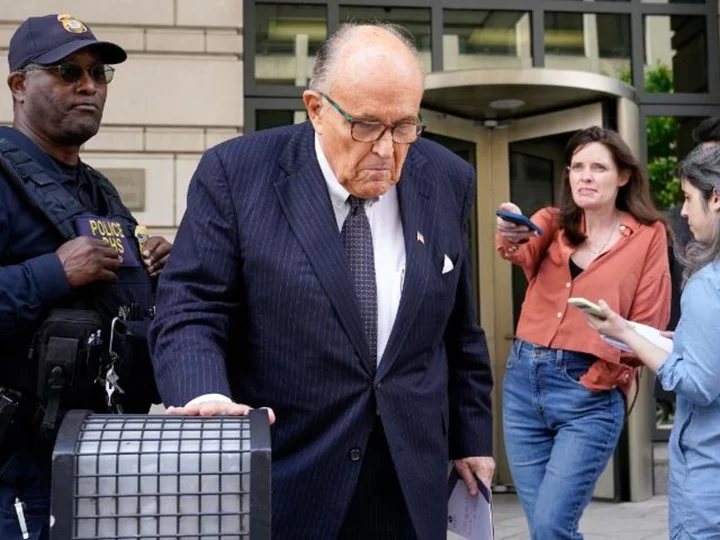
Attorney disciplinary committee recommends Rudy Giuliani be disbarred for 2020 election legal work
An attorney disciplinary committee has recommended Rudy Giuliani be disbarred in Washington, DC, for his efforts on behalf of then-President
2023-07-08 01:52
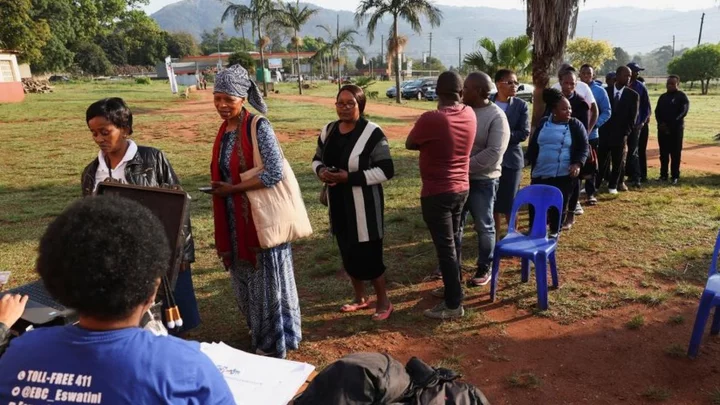
Eswatini election: The vote in a kingdom where parties are banned
Voting is under way in Eswatini, but in Africa's last absolute monarchy, MPs have little power.
2023-09-29 18:57

Colorado, Duke surge into the AP Top 25 after huge upsets; Florida State climbs into top five
No. 21 Duke and No. 22 Colorado have jumped into the Associated Press Top 25 college football poll after scoring the biggest upsets of the opening weekend of the season
2023-09-06 04:46

World’s largest crypto exchange pays $4.3bn to settle federal cases as CEO resigns
Binace, the world’s largest cryptocurrency exchange, will pay over $4bn to US officials after admitting to unlicensed money transfers, sanctions violations, and willfully failing to institute anti-money laundering protections, federal officials announced on Tuesday. The oversights allowed trading with sanctioned nations like Iran, Cuba, and Syria, and failed to institute systems to report suspicious potential transactions with terror groups, according to the Treasury Department. “Binance was allowing illicit actors to transact freely, supporting activities from child sexual abuse to illegal narcotics to terrorism,” Treasury Secretary Janet Yellensaid on Tuesday. Changpeng Zhao, the founder of and CEO of Binance, is also stepping down, and will pay a $50m fine after pleading guilty to related charges. He could face up to 18 months in prison. “I made mistakes, and I must take responsibility,” the executive wrote on X. “This is best for our community, for Binance, and for myself.” Federal officials described a wide-ranging set of problems at the crypto exchange, which at times handled two-thirds of global crypto trades. “It willfully enabled hundreds of millions of dollars in transactions between American users and users subject to US sanctions,” US Attorney General Merrick Garland said in remarks on Tuesday. “And its platform accommodated criminals across the world who used Binance to move their stolen funds and other criminal proceeds. “Binance prioritized its profits over the safety of the American people.” The massive penalty, one of the largest in US financial regulation history, will also go towards resolving inquiries from the Commodity Futures Trading Commission, the Department of the Treasury’s Financial Crimes Enforcement Network (FinCen), and the Office of Foreign Assets Control. On multiple occasions, Binance leadership intentionally took steps that allowed dangerous and illegal transactions to take place, according to the Justice Department. Binance knew it served US customers, meaning it had to register with FinCen and implement anti-money laundering controls, but “chose not to comply,” per the DOJ. Rather than set up these protections, the company created a separate Binance.US platform in 2019, while seeking to encourage VIP customers to obscure their accounts and continue using the main exchange, officials said. “Binance executives, including Zhao, made a plan to contact VIP customers and help the VIP register a new account for an offshore entity and transfer holdings to that account,” the DoJ said in an announcement of the agreement on Tuesday. “Binance employees also called US VIPs to encourage them to provide information that suggested the customer was not located in the United States.” The company, knowing it had US customers, also failed to introduce controls that would stop them from making trades with sanctioned jurisdictions like Iran, resulting in over $898m in trades between US and Iran-based users between January 2019 and May 2022. At one point, according to the DoJ, Zhao told employees it was “better to ask for forgiveness than permission,” while in another instance, a compliance employee wrote in a message, “We need a banner ‘is washing drug money too hard these days - come to binance we got cake for you.’” In a statement on Tuesday, Binance acknowledge making “criminal violations.” “These resolutions acknowledge our company’s responsibility for historical, criminal compliance violations, and allow our company to turn the page on a challenging yet transformative chapter of learning and growth,” the company wrote. “With the compliance and governance enhancements enshrined in our commitments, we can begin to share our vision for Binance’s exciting future and the future of the crypto industry.” The company also emphasised that the resolutions don’t allege Binance misappropriated user funds or engaged in market manipulation. Richard Teng, the company’s former global head of regional markets, will take over as CEO, according to Binance. The massive agreement with federal regulators will also require Binance to accept the appointment of a government monitor to oversee the business and bar Zhao from involvement with the company until three years after the monitor is appointed, according to court records viewed by The New York Times. Notably, the Securities and Exchange Commission was not a part of the Binance agreement. The SEC sued Binance and Zhao in June, alleging that they used companies beneficially owned by Zhao to inflate trading prices and make money off customers, allegedly mixing customer funds with Binance money. “While we take the SEC’s allegations seriously, they should not be the subject of an SEC enforcement action, let alone on an emergency basis. We intend to defend our platform vigorously,” the company responded at the time in a statement. “And, to be clear: any allegations that user assets on the Binance.US platform have ever been at risk are simply wrong, and there is zero justification for the Staff’s action in light of the ample time the Staff has had to conduct their investigation,” the company added in the statement. The massive settlement comes just weeks after FTX founder Sam Bankman-Fried was found guilty in federal court of defrauding customers on his popular cryptocurrency exchange out of billions of dollars. Bankman-Fried’s defence team has vowed to fight the charges.
2023-11-22 10:49

J&J begins restructuring at medical device unit after sales miss
By Bhanvi Satija and Patrick Wingrove (Reuters) -Johnson & Johnson on Tuesday said it has embarked on a two-year restructuring
2023-10-17 23:22
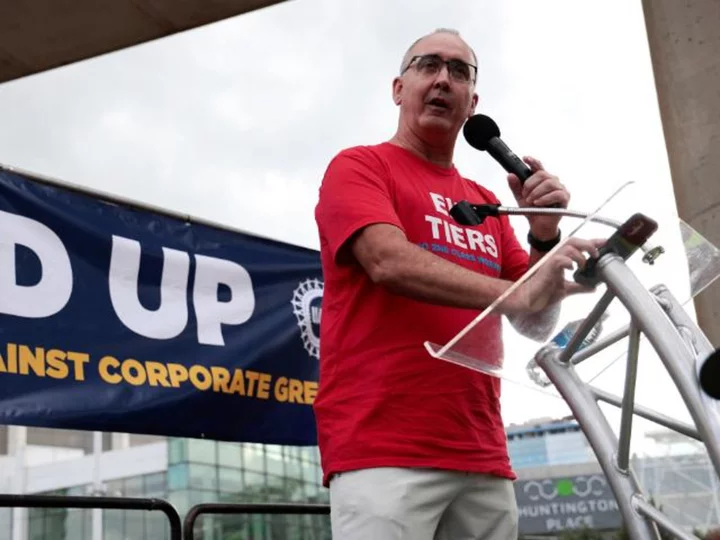
UAW president has some harsh words for Trump
The head of the United Auto Workers union is publicly denouncing former President Donald Trump ahead of his visit next week to Detroit as part of a plea to current and former union members.
2023-09-19 22:51

MSNBC shuffling weekend schedule, debuting new morning ensemble, heading into election year
MSNBC is shuffling its weekend schedule early next year with an eye toward juicing ratings heading into an election year
2023-12-01 09:22
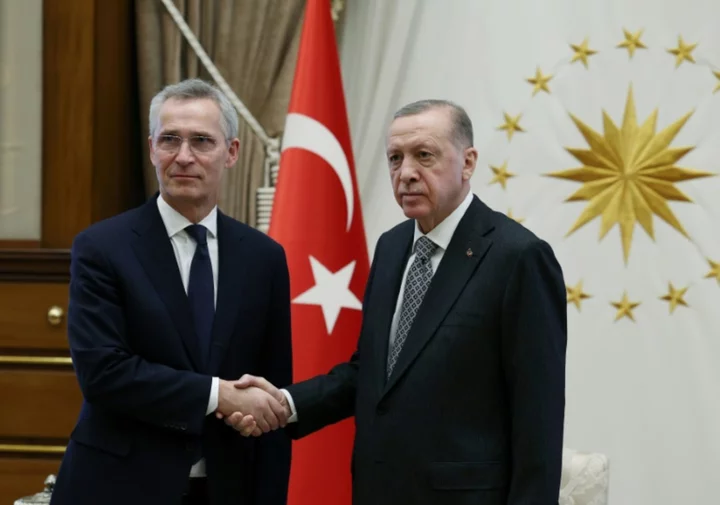
NATO chief urges Turkey not to veto Sweden's bid
NATO chief Jens Stoltenberg on Sunday called on Ankara to drop its opposition to Sweden's bid to join the US-led defence alliance, hoping Stockholm's accession would be...
2023-06-04 23:26
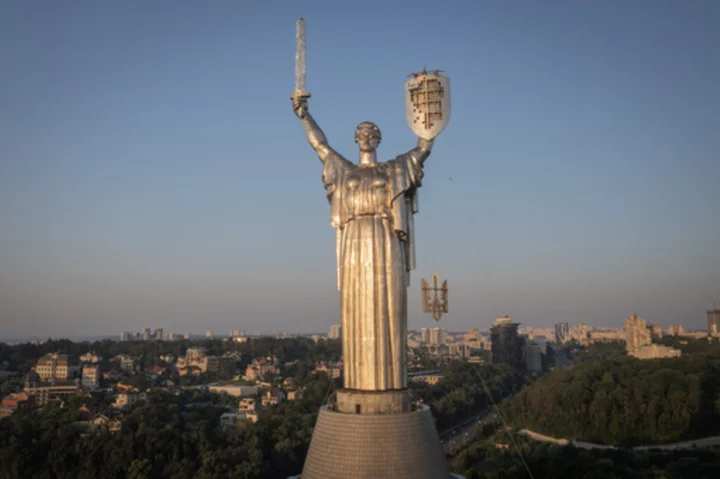
Ukraine replaces Soviet coat of arms with trident on towering Kyiv landmark
Ukraine has replaced the Soviet emblem that once adorned one of the nation’s most recognizable landmarks with the country’s coat of arms
2023-08-07 00:46
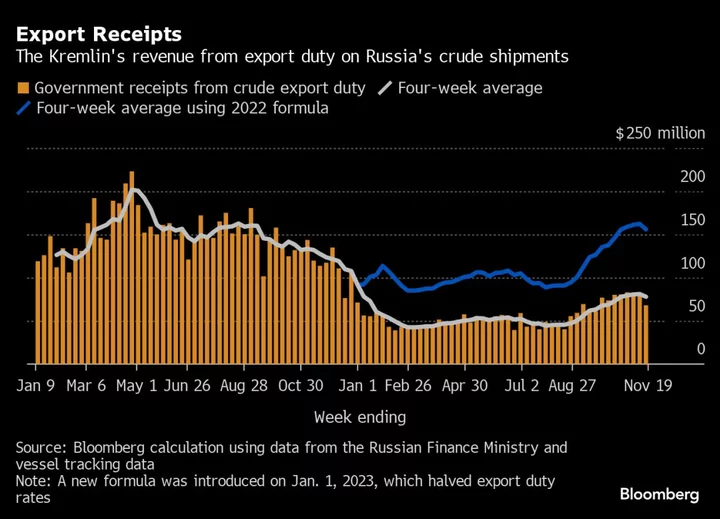
Russia Cuts Seaborne Crude Flows to Three-Month Low Before OPEC+
Russia cut back its seaborne crude exports to the lowest since August before a meeting of OPEC+ oil
2023-11-21 18:22
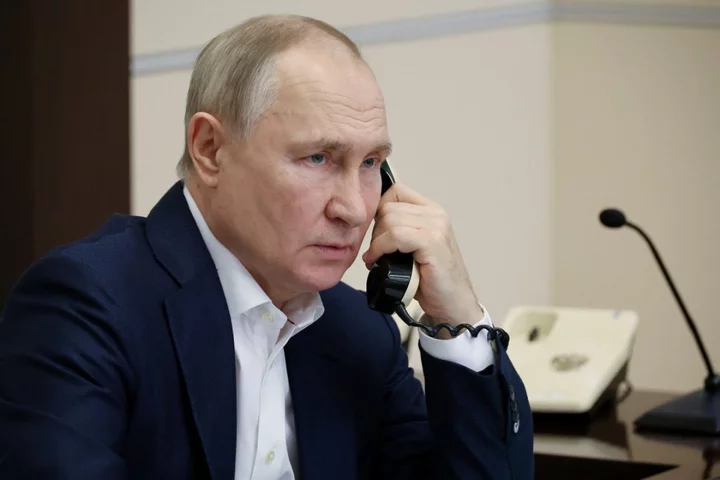
Dead, wounded or AWOL: Secret recordings reveal Russian soldiers trying to get out of the Ukraine war
In audio intercepts from the front lines in Ukraine, Russian soldiers speak in shorthand of 200s to mean dead, 300s to mean wounded. The urge to flee has become common enough that they also talk of 500s — people who refuse to fight. As the war grinds into its second winter, a growing number of Russian soldiers want out, as suggested in secret recordings obtained by The Associated Press of Russian soldiers calling home from the battlefields of the Kharkiv, Luhansk and Donetsk regions in Ukraine. The calls offer a rare glimpse of the war as it looked through Russian eyes — a point of view that seldom makes its way into Western media, largely because Russia has made it a crime to speak honestly about the conflict in Ukraine. They also show clearly how the war has progressed, from the professional soldiers who initially powered Vladimir Putin’s full-scale invasion to men from all walks of life compelled to serve in grueling conditions. “There’s no f------ ‘dying the death of the brave’ here,” one soldier told his brother from the front in Ukraine’s Kharkiv region. “You just die like a f------ earthworm.” The prospect of another wave of mobilization lingers, even as Moscow has been trying to lure people into signing contracts with the military. Russia’s annual autumn conscription draft kicked off in October, pulling in some 130,000 fresh young men. Though Moscow says conscripts won’t be sent to Ukraine, after a year of service they automatically become reservists — prime candidates for mobilization. The AP verified the identities of people in the calls by speaking with relatives and soldiers — some of whom are still at war in Ukraine — and researching open-source material linked to the phone numbers used by the soldiers. The conversations, picked up in January 2023 — some from near the longest and deadliest fight in Bakhmut — have been edited for length and clarity. Names have been omitted to protect the soldiers and their relatives. The voices in these calls are of men who didn’t or couldn’t flee mobilization. Some had no money, no education and no options. Others believed in patriotic duty. One worked in a meat processing plant, cutting bone. Another worked at a law firm. A third, who worked as a roofer and later at a supermarket company, had a string of debts and had defaulted on his utilities payments, records show. It is hard to say how representative these calls are of sentiment in Russia’s armed forces, but their desperation is matched by a spike in legal cases against soldiers in Russia who refuse to fight. What’s happening in Ukraine is “simply genocide,” the soldier in Kharkiv told his brother. “If this s--- doesn’t stop, then soon we’ll be leading the Ukrainians to the Kremlin ourselves,” he said. “This is just a huge testing ground, where the whole world is testing their weapons, f--- it, and sizing up their d----,” he went on. "That’s all.” But there are other voices, too, of men who remain committed to the fight. “As long as we are needed here, we will carry out our task,” a soldier named Artyom told AP from eastern Ukraine at the end of May, where he’d been stationed for eight months without break. “Just stop asking me these stupid questions.” The Kremlin and Russian Ministry of Defense did not respond to requests for comment. SOLDIER: ‘BONES, TEARS — ALL THE SAME, THEY ARE THE SAME AS WE ARE’ When he finally got to go home, it came at a terrible price: his brother’s life. Nicknamed “Crazy Professor” because of his disheveled hair, he was swept up in the first days of Russia’s September 2022 draft. The soldier said he was assured that he wouldn’t see combat and would get to go home every six months. Neither turned out to be true. After a few weeks of training, the Professor was sent to the front line near Bakhmut as a mortarman. He wanted out almost immediately. He was ill-equipped, at least compared to the well-camouflaged Wagner soldiers wandering around. “They have night vision and automatic rifles with cool silencers. I have an automatic rifle from 1986 or hell knows what year,” he told his brother in a January phone call. It was his job to aim, but the Russian army’s coordinates were so sloppy that soldiers ended up killing each other. The Professor said his commander instructed them not to kill civilians, but who was a civilian and who was a combatant? Even a kid could carry a grenade, he told his brother. Where did the mortars he fired land? Had he killed children? The worst was when he was out with young guys in his unit. There was just a strip of woods between them and the Ukrainians. “I imagined that there, on the other side, there could be young people just like us. And they have their whole lives ahead of them,” he told AP in June. “Bones, tears — all the same, they are the same as we are.” The Professor told himself he didn’t really have a choice: Either fire the mortar or face criminal charges and end up in a pit or a prison. “If you don’t like something, if you refuse to do something, you’re considered a refusenik," he told AP. "That is, you’re a ‘500’ right away. … So we had to follow orders. Whether we wanted to or not.” The Professor never thought he’d be a refusenik one day too. ___ The Professor: The worst thing is that there might even be children there, you know. Brother: And what can you do. … You have your orders. … It seems to me that if it had been voluntary, you wouldn’t have gone. The Professor: You know, I’m glad about that. Plus, we did such a good job that they gave us a car. The downside is, you know, how many lives were ruined for the sake of a car? Brother: Not of your own free will. The Professor: I’m already so tired. Brother: I believe it. Time to come home. I wish you could come home. Not so that you could home but so that all of this could be over already. ___ In the spring, as the Professor’s brothers drove down a road outside their hometown in Russia, a car made a U-turn into the side of their vehicle, sending it spinning as a semi bore down on them. One brother was killed. Another survived but now cannot walk, family members told AP. Desperate to go home to bury his brother, the Professor said he got approval from his commander for a 10-day leave. Military police in Russian-controlled territory in Luhansk let him through, he said, and he paid for his own taxi ride home. Once he got back to Russia, however, he was told he didn’t have the right paperwork. Not long after the funeral, the Professor got a message from his commanding officer: “What is happening there? Are you going to come back or stay there?” “I’ll collect the documents, and then we’ll decide everything,” he wrote back. Two hours later, around midnight, his commander responded: “I’m reporting you as AWOL, unauthorized abandonment of the unit. It was nice fighting together.” Now he faces up to 10 years in prison. He hired a lawyer. Months into a 10-day leave, he can’t even apply for an extension to legalize his stay and help his family because he doesn’t have the right documents. He said his brother can move around on his arms and mostly get into his wheelchair by himself, but can't function independently. People from the military came to his home, he said. Terrified they’d arrest him if he went outside, he passed documents attesting to the dire state of his family’s health to them through the window. His lawyer told him to look on the bright side. “You are the only, well, how do I put this … at least, you’re the only healthy person here.” His mother is at the end of her endurance. “I write everywhere, I call everywhere, too. Because he was told that he has to return to his unit,” his mother told AP. “But how can he leave his brother? I have no one.” Now, the Professor has visions of dead people. They stare back at him. He can almost hear them walking nearby. Sometimes he bolts awake at night, sweating, or dives under the covers at the sound of a whistle. He wants his old life back, that sweet time he had with his wife and baby. He has picked up some roofing work at construction sites, and his neighbor proposed a new side job: digging graves. ARTYOM: 'EVERYBODY'S F------ MAD, F------ GLOOMY AS HELL' Artyom left behind a string of debts in Russia. Things got even worse in Ukraine, where it was so cold he couldn’t wash his underwear and his lighter kept freezing. “It’s not like I’m having any f------ fun here, day in day out. It’s been f------ four months already,” he told his wife in January. “Everybody’s f------ mad, f------ gloomy as hell.” It was New Year’s Day, and the Russians were getting bombarded by Ukrainians and not even firing back, he said. “Yesterday we were f------ bombarded, for f---’s sake, we didn’t even get a single shell out, not a single f------ shell,” he told his wife. The war seemed senseless to him. Why wasn’t Putin satisfied with Crimea? What business did they have trying to take Kharkiv and Kyiv? Why was everyone lying about how great things were at the front? No one was saying the one thing he wanted to hear: that he could go home. ___ Artyom: Yesterday we were listening to the radio and someone f------ said, “the situation with mobilized soldiers is f------ wonderful.” I don’t know who the f------ idiot is who said that. “Only five thousand people died.” Wife: Mhm. Of course. Artyom: F------ s---heads. I think half of them are probably gone at this point. Wife: Right. Artyom: Five thousand people my ass. ___ Artyom doesn’t have much sympathy for draft dodgers and deserters, though he can see the wisdom in making a run for it. “That’s what you have to do, given the chance,” he told his wife. “This is not the best f------ place to be … But then they’re gonna say you’re a f------ freak who ran away. I don’t f------ need that.” He told her he’ll stay put and follow orders. “If God wills it so that you’re gonna f------ die, you’re gonna f------ die, can’t do much about it.” The AP reached Artyom by phone at the end of May. He was still in eastern Ukraine, where he’d been serving for eight months without break. Artyom said he’d been “a little worn out mentally” when he was speaking with his wife. He said he loved his family before the war and loved them even more now. He regrets he didn’t spend more time with them. “I have to save the guys who are with me in the trenches — and myself,” he said. “That’s what I want to do. And to put down the Ukrainians faster and go home.” ROMAN: ‘I ALREADY FEEL MORE PITY SHOOTING A BIRD THAN A PERSON’ After two months on the front lines north of Bakhmut, Roman had some advice for his friend and former colleague back in Russia: Avoid this war any way you can. “I’m telling you honestly, if there’s even a slight chance, get exempted from service. But if the summons comes for mobilization, f--- it to hell. Join Wagner or the contract soldiers, or wherever you can. God forbid the mobilized. The mobilized are the lowest.” Roman explained that professional contract soldiers are taken care of: They get to go on leave, launder their clothes and bathe. They don’t have to struggle for food and water. Meanwhile, mobilized soldiers like him are shoved in trenches with men from all walks of life, some of whom don’t even know how to hold guns. They never get to leave, and their commanders — “weak wusses,” he says — aren’t much help. He’s had to buy night vision goggles with his own money. There’s not enough to eat and no clean drinking water. Soldiers are licking at snowflakes and scooping up rainwater to drink. He said he lost 30 kilos (over 60 pounds). The diarrhea hasn’t helped. “It came to the point that there were puddles, it had rained, and the guys scooped up all the puddles and drank,” Roman told his friend. “Snow fell, f------ s---, and the snow didn’t even reach the ground, the guys caught it and ate it.” When he arrived in Ukraine in November 2022, Roman was part of a unit of 100 men. By early January, about a third were gone. Roman said he’s been lucky twice. Once he got food poisoning and stayed back while a group of scouts went out. They never came back. Another time, he was carrying water and tripped and fell just as a shell landed, killing others nearby. Surrounded by a horseshoe of Ukrainian troops, Roman said it was like being on the tip of a toilet seat, in constant fear that their supply lines, thin as they were, would get cut off. Roman had to scoop a man’s guts back into his body — an act that didn’t save the guy’s life. Another time, he went out to defecate in a field, and tanks started firing around him. He just kept squatting till he was done. After two months of living like this, so scared you’ll shoot at the softest sound in the dark, even the strongest minds started to fray. “We survive because we are on edge all the time,” he said. “Even guys from our own side don’t come close, especially at night. When we are on duty, we warn everyone that we will shoot at anything that rustles.” Roman said his cousin was killed by a shell that took out a dozen soldiers. His family managed to get his body — or at least half of his body — back to Russia, but the other 11 soldiers lay unclaimed in Ukraine. It wasn’t just the killing that did people in, it was the sense that they’d been forgotten. ___ Roman: Our group is made up of guys who are sufficiently strong, morally, and guys like that. It was the first wave. Guys came together who are sufficiently patriotic, roughly speaking, who knew what it was to fight. After two months, they start to lose it. For many of them, their psyche was broken. Friend: Yeah, I understand, all of the killing of course. Roman: Yes, the killing is everywhere. A f------ lot of corpses. Some were stabbed with a knife, but that’s not the point. Psyches are not broken because of this. These are people who are professionals, it’s our national army, these professionals come to our position. ‘F---, it’s f----- up here.’ They turn around and leave. That is, they are replaced, they have rotation, they are given leave, their clothes are washed and ironed, they wash in the bathhouse, they have no problem with food, they have no problem with water. It’s not like this for us. It once came to the point that there were puddles, it had rained, and the guys scooped up all the puddles and drank. ___ The “depressing, horrible” panic that attacked him at the beginning of his tour has subsided. The calls home help. One night, Roman got pulled into a special mission. They snuck into a Ukrainian dugout, knives drawn, hacked up a bunch of men and captured a Ukrainian officer for questioning. Death was everywhere, on both sides of the front. “F---, I already feel more pity shooting a bird than a person," Roman told his friend. Contacted by the AP, both men declined to comment. ANDREI: ‘THE MOBILIZED ARE NOT CONSIDERED HUMANS’ After four months in Ukraine, Andrei concluded that his life meant nothing to Moscow. Called up for military service from a small town in Russia’s far east, he soon found himself in eastern Ukraine’s Donetsk province, on the southern approach to Bakhmut. Andrei’s unit was taking heavy losses, and no one was even shooting back at the Ukrainians, he said. People were dying from friendly fire. Mobilized men like him were being forced to sign contracts. “The mobilized are not considered humans,” he told his mother. “No one gives a damn about us. They think that for 200,000 (rubles) we should die here.” Mutiny was in the air. ___ Andrei: Our boys are dying for nothing. It’s nonsense, I tell you. This is not a war at all. When I come back, I’ll tell you what’s going on here. It’s all bull----. I’m telling you, our boys are dying, going 300, and no one even shoots back. It’s all nonsense. Our artillery is hammering our own dugouts, not theirs. What is that? Mother: What for? Andrei: They, like, miss the mark. … Here, if they don’t get you, your own will. Mother: (Inaudible) Andrei: I’m telling you, you just start going nuts here, like everything pisses you off. Because you can’t do s--- about it. Nobody gives a s---. It’s a half year and that’s it. F--- them. If they don’t relieve us, if they don’t pull us out, the whole company will just walk away. They can’t put a crowd of 100 people on trial. Mother: They have no right to keep you longer. Andrei: No one gives a damn here. We were told the other day that they forgot about us a little bit here. But they didn’t just forget about us — they f----- us. ___ Mobilized soldiers like him are treated worst of all, he told his mom. They’re not allowed to leave — even if they get injured — because commanders fear they’ll never come back. ___ Andrei: Well, our guys are getting killed in droves. Mother: Judging by what I — Andrei: I’m telling you. In droves from our side. If a contract soldier is wounded, he’s sent home. If a mobilized soldier is wounded, they treat him, patch him up a bit, and tell him to go the f--- back, why the hell are you dodging? All in all, if you get sick here, you will not be sent home. They won’t give a damn, and you’ll die in this pit where you live in. You can’t get sick here at all. Mother: Better not get sick. (Inaudible) Andrei: This is how s--- works here. As long as you are useful, they like know who you are. And when you become useless, then nobody needs you. They forget about you. ___ He said the only reason he’s still alive is luck and regrets finding himself at war. “This is my only mistake in life,” he said. “I will not fall into the same trap twice.” “God gives you one chance,” his mother responded. “God willing, you’ll come home.” In September, Andrei’s mother told AP her son was home, keeping himself busy with his family and collecting pine cones from the taiga. She said she was born in Ukraine and her mother still lives there. She said it pains her that Ukraine is now filled with “traitors and fascists.” “I hate your current rulers,” she said. “Are you blind or stupid? Or can’t you see that there are no normal people? Or do you want your children to turn into monkeys, like in America? What is this? I don’t recognize my homeland, where I was born and went to school.” ___ AP reporters Lynn Berry in Washington and Alla Konstantinova in Vilnius, Lithuania, contributed to this report. Students from the Russian translation and interpretation program at Middlebury Institute of International Studies also contributed to this report. ___ More AP coverage at https://apnews.com/hub/russia-ukraine Read More Ukraine and the Western Balkans top Blinken agenda for NATO foreign ministers meeting in Brussels More than half a million people left without power in Crimea, Russia and Ukraine after huge storm North Korea restores border guard posts amid rising tensions over its satellite launch, Seoul says Three dead as first heavy snowfall and blizzards of winter hit eastern Europe Russia forced to move air defences from Kaliningrad to Ukraine front after losses Ukraine is shipping more grain through the Black Sea despite threat from Russia
2023-11-27 22:50
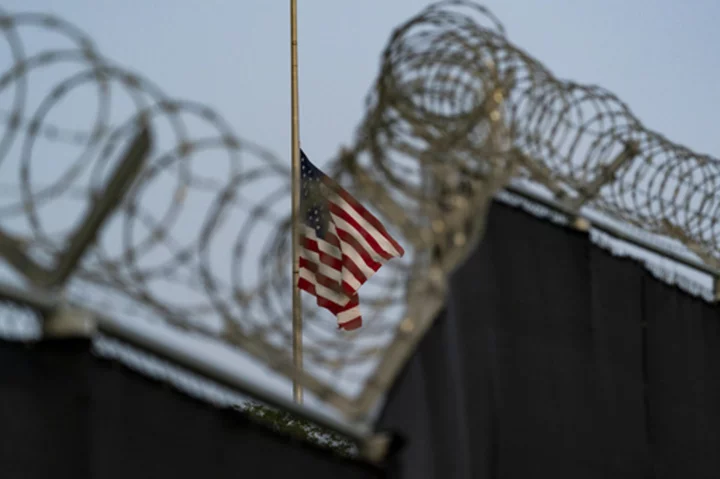
Guantanamo detainees tell first independent visitor about scars from torture and hopes to leave
At the U.S. detention center at Guantanamo Bay, the aging men known by their serial numbers arrived at the meeting shackled
2023-07-06 12:25
You Might Like...

Dixie D’Amelio addresses romance rumors with Josh Richards: 'I just hate that there was so much drama'
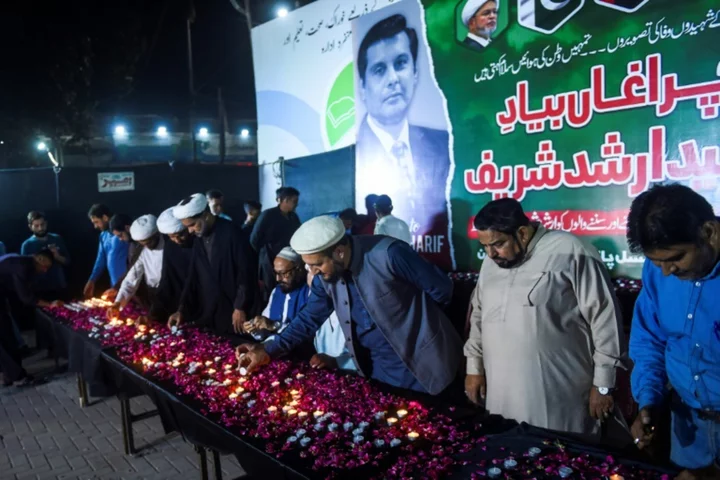
Widow of killed Pakistani journalist sues Kenya police

Kyiv warns of 'difficult' winter as Russia hits Ukraine cities
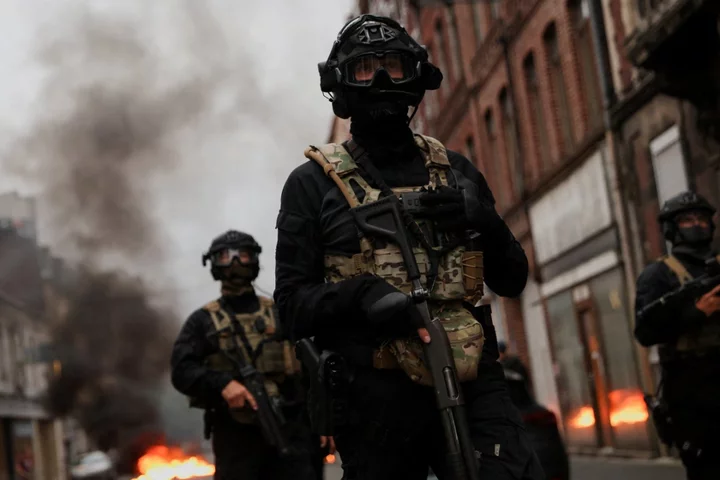
France riots: Cities hit by fifth night of violence despite police reinforcements
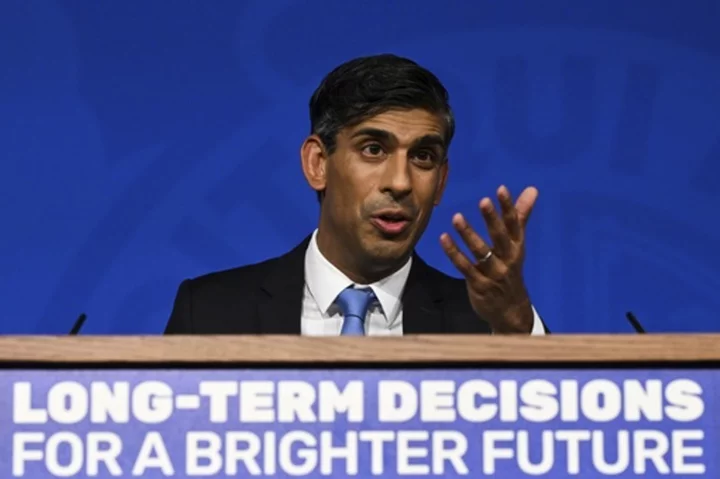
UK leader Rishi Sunak delays ban on new gas and diesel cars by 5 years in contentious climate shift

China Sets Out Proposals to Underpin Its Massive Renewables Push
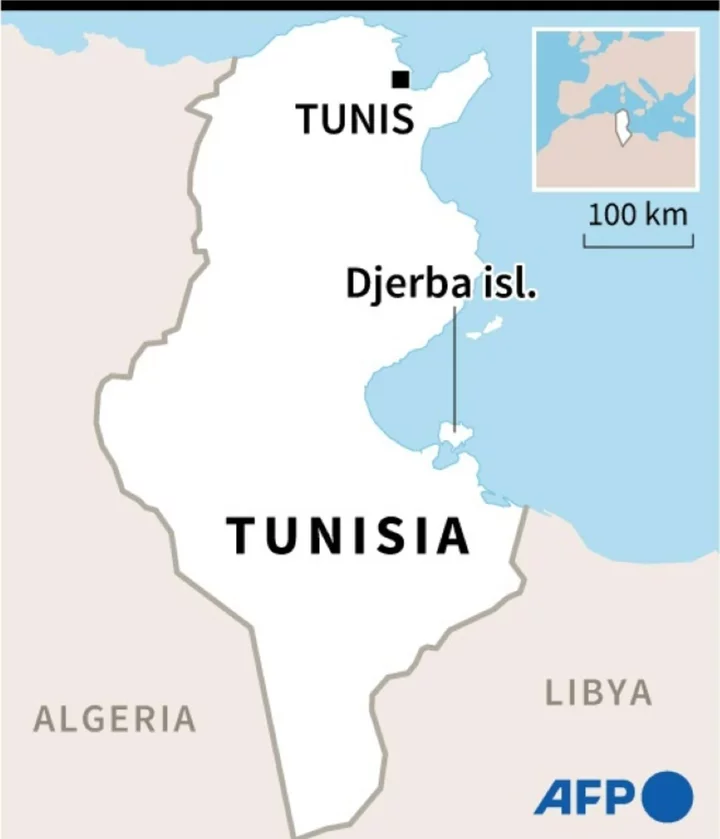
Four people shot dead in Tunisia synagogue attack

Takeaways from AP's reporting on inconsistencies in RFK Jr.'s record
